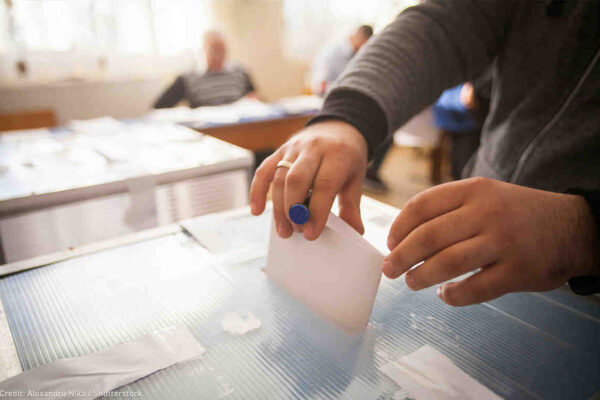By Julie Ebenstein, Staff Attorney, Voting Rights Project, ACLU
Approved in 1901, the Alabama Constitution disqualifies from voting any citizen convicted of a “crime involving moral turpitude.” That may at first seem racially neutral, but the document as well as the moral turpitude provision were designed with clear racist intent. The drafters intentionally sought to subvert the 14th and 15th Amendments’ protection against racial discrimination in voting by using the moral turpitude provision, in conjunction with discriminatory criminal justice enforcement, to target Alabama’s Black citizens.
As the Supreme Court held in 1985, Alabama’s moral turpitude provision was enacted out of racial animus. The court explained, “the delegates to the all-white [1901] convention were not secretive about their purpose,” which was, as the “president of the convention stated in his opening address . . . ‘to establish white supremacy in this State.’”
The stench of that discriminatory purpose still lingers today.
Under the moral turpitude provision, Alabama currently disenfranchises over 250,000 otherwise qualified citizens — nearly 8 percent of the population — because of a prior conviction. Because of Alabama’s disproportionately high rate of arrest and prosecution of its Black citizens, that includes over 15 percent of the Black voting age population.
But yesterday, nearly 120 years later, Alabama took a small step towards reform.
Last night, Gov. Kay Ivey signed HB282, restoring voting rights to thousands of Alabamans with a prior felony conviction. The law simply establishes a comprehensive list of felonies involving “moral turpitude,” so that the term cannot be misapplied or interpreted overly broadly. The new law, at minimum, gives voters appropriate notice of which convictions will disqualify them from voting — clarity Alabamians never had before.
The list of disqualifying crimes includes serious, violent offenses, like murder, rape, and treason as well as crimes related to dishonesty, like securities fraud and forgery. Critically, it does not include drug possession offenses.
Until yesterday, determining which felonies disqualify a citizen from voting was based on amorphous interpretations of “moral turpitude” that varied by county. There was no definitive list of offenses. Instead, there was a 2005 state attorney general opinion setting out categories of crimes determined by the Alabama courts to involve, or not involve, moral turpitude. It included lower level offenses, like possession of marijuana for resale, and crimes that were difficult to identify without a course in criminal law, like all offenses that “have fraud as an element.” The opinion recognized that the attorney general could not “provide an exhaustive list of every felony involving moral turpitude,” which leads you to wonder how the average citizen could have possibly figured out whether their conviction affected their voting rights.
Read the full post here.

